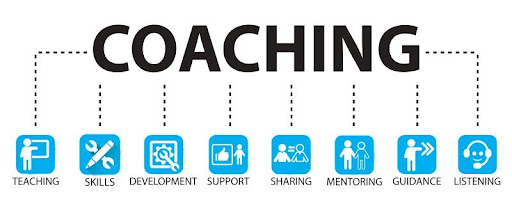
What is agile coaching and what does an agile coach do?
The agile coach has a major role to play in the introduction of agility and in supporting agile project managers. However, the role and responsibilities of the agile coach are still unclear to many. In this article, we will discuss how we understand the term agile coaching and what does an agile coach do?
Agile coaching and traditional coaching: what is the difference?
Coaching, in the International Coaching Federation's view, is a creative, thought-provoking, perspective-changing, partnership process that inspires clients to explore their personal and professional potential and achieve their goals.
Coaching tools can be used in almost any area of life, but the development of a specific area requires knowledge and professional experience from other areas in addition to traditional tools.
That is why there are now many types of coaching. Life coaching and business coaching are completely separate fields. Agile coaching is a special field of business coaching.

What is Agile Coaching?
Agility is a great way to make your business simpler, more efficient and to make the products and services you develop more responsive to the ever-changing environment and customer expectations. But agile transformation also brings many challenges. Often there is a lot of resistance to organisational change and culture change, but selecting and implementing practices that really serve the company's interests can also be a challenge.
The agile coach helps you to solve these challenges. Let's see how!
Tasks of the agile coach
If you've been to a training at our company, you may have noticed a little exclamation mark above your head: after all, Agile Coaches and Scrum Masters often mentor, teach, facilitate and coach! The activity of "coaching" in the Agile and traditional project environment, which is aimed at effective project management or project work and team organisation, is often multi-faceted and includes the activities listed above. A really good agile coach can therefore cover many different areas of competence depending on the context and situation.
Lyssa Adkins describes it in a similar way: coaching in agile teams has a dual dimension, including coaching and mentoring. Yes, you can support someone to achieve their next goal in life, in their profession, just like a real coach. You also share your agile experiences and ideas, mentoring them to use agile principles properly.
So you use coaching and mentoring competencies together to develop talented agile professionals who effectively create business value along agile principles (2010).
So as an agile coach, we contract to support the agile team, the organisation that wants to change, which includes:
- As a teacher, teaching different methods, tools and frameworks;
- As an advisor on how to deal with situations of stuckness,
- As mentors, sharing our own learning processes and experiences,
- As a coach, I lead processes and ask questions that help teams and individuals to discover new ideas and solution strategies.
Project coaching works in a similar way in a traditional project environment. Here, the specialist explores the functioning of teams and processes and uses various methods to help the client develop appropriate planning, implementation and follow-up methods.
How does the agile coach help the organisation?
- The agile coach helps to clarify the organisational goals, the steps to achieve them, and is a partner in their implementation;
- Contribute to the development of a tailored agile approach that fits the organisation's objectives;
- Accelerates the agile transformation by offering different agile tools and exercises;
- It helps you manage change and set priorities;
- It acts as a mediator between the management and the teams, thus increasing the level of coordination;
- He prepares agile teams to thrive after his departure.

Types of agile coaching
Depending on the level at which the agile coach operates in the organisation, they can be differentiated:
- Agile team facilitator
- Agile coach working at multi-team level
- Agile coach for the whole organisation
In the following, we will describe the competency areas and tasks that an agile coach needs to be proficient in.
Agile team facilitator
An agile coach is a single agile coach who supports the work of an agile team to facilitate the work of that team, increase the understanding and application of agile values and practices, and improve the productivity of the team. A typical such role is the Scrum Master, but depending on the methodology the name may vary.
To be successful in this role, the following skills are essential:
- Deep knowledge and ability to use traditional coaching tools;
- Recognition of team dynamics and knowledge of tools to improve team functioning - because the agile coach works with the agile team throughout, there will be a very detailed and deep dialogue;
- You need to be able to motivate your team members, especially if you are introducing agility top-down, i.e. on the instructions of management - in which case the resistance of individual employees can be relatively high;
- It is fortunate if the agile coach also understands the technological implementation of development.
More information about the Scrum Master's tasks is given in this article.
Multi-team agile coach
It is common for an agile coach to work with several teams. In this case, the main objectives of his activities are:
- It helps to identify and apply best practices for teamwork;
- It supports the integration of teams into the wider processes of the organisation;
- Mentor team-level coaches, scrum masters;
- It helps to reduce the resistance of top management to the loss of control that comes with agile operation;
- Tracks and measures the results of the agile transition.
Although the skills of an agile coach at team level are needed in this case, more experience and insight into the whole functioning of the organisation is needed.
Enterprise level agile coach
If the agile coaching process is extended to the whole organisation, the coach is even less involved in facilitating day-to-day operations. Instead, the focus is more on transforming the corporate structure along agile principles and subsequently creating the structure needed to sustain it within the organisation. There is a strong emphasis on working with senior management, communicating agile principles to managers and making the benefits known.
In addition to the competences described above, there is a need for:
- Organisational operational and planning skills;
- Experience in organisational change management;
- Leadership coaching skills;
- Deep knowledge of Agile frameworks (e.g. SAFe, LeSS or DaD)
How to become an agile coach? Agile coach training courses
In practice, people who were previously project managers are often appointed as scrum masters as a first step. But it may also be the case that the move is from a software developer or product manager position, often not even to a full-time position. In this case, the employee spends part of his/her time in the new role and part of his/her time in the old role.
To successfully implement new tasks, a practice-oriented scrum master training simulating real-life situations or our tailor-made Agile Coach training can be of great help. About our Scrum Master training read more here.
General, role-independent knowledge and international certification is offered through our PMI-ACP exam preparation programme.
And for Senior Scrum Masters, our exam preparation course based on the PMI-DASSM Disciplined Agile framework offers a pathway to progression.
Want to know more about coaching, individual or team development?
Our colleagues will help you get answers to your questions, contact us!

 Designabc
Designabc